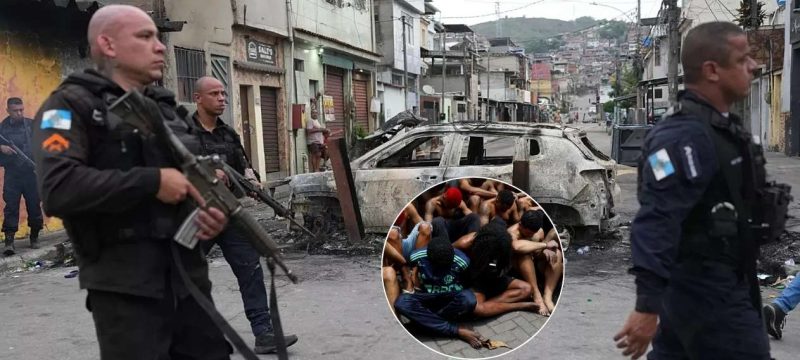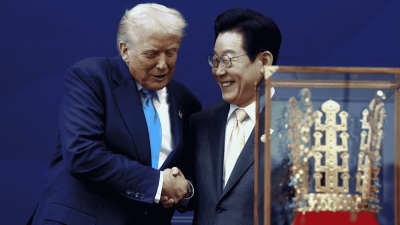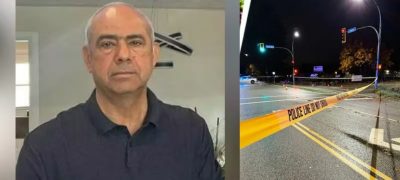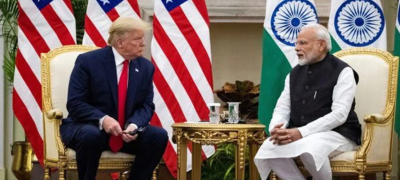RIO DE JANEIRO – A massive police operation in Rio de Janeiro left at least 64 people dead on Tuesday in one of the deadliest Rio drug raids in the city’s history. The large-scale crackdown targeted drug traffickers in two major favelas, leaving residents trapped in scenes resembling urban warfare.
According to officials, more than 2,500 armed officers, supported by helicopters, armored vehicles, and drones, were deployed to the northern neighborhoods of Complexo da Penha and Complexo do Alemao. The Rio drug raids aimed to dismantle operations run by the notorious Comando Vermelho (Red Command) gang.
Gunfire echoed across the area near Rio’s international airport, while plumes of smoke rose as fires broke out. Residents fled for safety as reports emerged that gangs were using drones to launch attacks against police forces. Governor Claudio Castro described the operation as the largest and most dangerous in the state’s history.
Authorities confirmed that 60 suspected criminals were killed, along with four police officers. The operation remained active late into Tuesday evening, causing massive traffic disruptions across Rio.
Witnesses in the Vila Cruzeiro area said police detained several young men suspected of gang involvement. “Everyone is terrified; there’s constant gunfire,” one resident said. Locals reported that for the first time, criminals used drones to drop explosives on officers.
The Rio drug raids mobilized two helicopters, 32 armored vehicles, and 12 demolition units to clear barricades set up by traffickers. Police said their objective was to restore order in neighborhoods long dominated by violent gangs.
However, human rights groups and international observers have condemned the operation’s brutality. The United Nations Human Rights Office expressed concern over the “extreme lethal consequences” of police actions in Rio’s impoverished communities, urging transparent investigations.
In other news read more about Indian Businessman Darshan Singh Sahsi Shot Dead in Canada in Targeted Attack
Last year alone, nearly 700 people died in similar police operations across Rio. Critics argue that these aggressive tactics have failed to reduce organized crime and instead deepen mistrust between law enforcement and residents.









